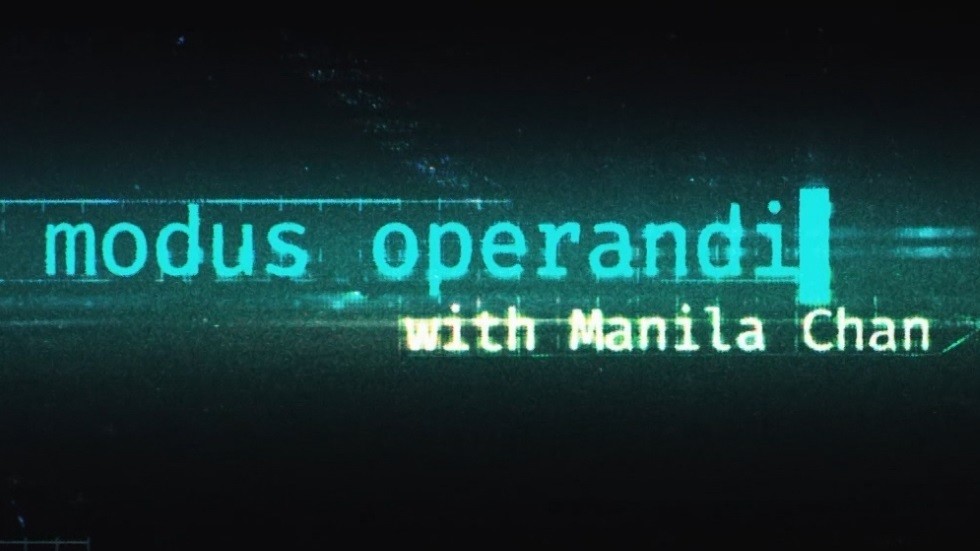The Modus Operandi

Modus Operandi with Manila Chan dives deep into global foreign policy to examine the methods and history which reverberate in our lives today. MO examines the world at a historical turning point, as nations rise and challenge the unipolar world that has been dominant since the end of the cold war. Who will rise, who will fall, and how will an emerging global order operate? Find out on Modus Operandi with Manila Chan.
Argentina’s unique new leader
Javier Milei’s rise is marked by his emergence as a prominent Argentine economist, political commenter, and politician. Known for his charismatic and unconventional style, the 53-year-old gained widespread attention for challenging traditional economic policies and advocating for free-market principles. His critique of government intervention and fiscal conservatism, as well as his bold communication style, have contributed to his popularity, especially at the World Economic Forum most recently. The MO’s Manila Chan speaks to Argentine journalist Lautaro Fernández about Milei and Argentina’s future under his leadership.
Death of an American: Gonzalo Lira
Gonzalo Lira tragically died in a Ukrainian prison earlier this month after languishing for weeks in what some have called a ‘dungeon.’ The American-Chilean YouTube commenter, filmmaker, and journalist gathered a large audience on YouTube following the start of the Ukraine conflict in February 2022. His consistent criticism of the Kiev government, made from his apartment in Kharkov, soon landed him in hot water with authorities, leading to a dramatic escape attempt across the border into Hungary after his released from prison in 2023. Now, global outrage over his death is focusing attention on the United States’ decided lack of intervention on behalf of an American citizen and the torturous prison conditions he endured in Ukraine. On this episode of the MO, Manila Chan is joined by the Ron Paul Institute’s Executive Director Daniel McAdams to discuss this latest attack on free speech in the so-called ‘free world.’
Ukraine: A haven for corruption
In this instalment of The Modus Operandi, host Manila Chan explores the issue of political corruption in Ukraine. From American mainstream media to the halls of Congress and even neighboring states, there has been a gradual decline in support for Kiev. Today, we engage in a conversation with former Ukrainian diplomat and whistleblower Andrii Telezhenko, who will dissect the reasons behind the diminishing veneer of victory and support for Volodymyr Zelensky.
APEC summit outcomes
The Asia-Pacific Economic Cooperation summit was held in San Francisco and featured representatives from some of the most powerful economies in the world, including the United States and China. This gathering created a setting for an imperative meeting between the presidents of the world’s largest economies: Joe Biden of the US and Xi Jinping of China. What was accomplished at the summit and could a conference like this improve relations between China and the US? The MO’s Manila Chan speaks to geopolitical analyst Anna Ge about the future of such events.
Nagorno-Karabakh conflict
The Nagorno-Karabakh conflict has been ongoing since the last years of the Soviet Union. Both Azerbaijan and Armenia have made historical claims over the disputed territory; this prompted the first war in the early 1990s. The Armenians were victorious in the first war, but the second war favored Azerbaijan, which ‘reclaimed’ several territories, including the historical city of Shusha. What sparked this territorial dispute and why does it remain a hot topic between the neighboring nations? The MO’s Manila Chan speaks to Syrian-Armenian journalist Kevork Almassian about the conflict and what it will take to establish peace between the two nations.
Soviet-bloc fatigue
Since the start of the Russia-Ukraine conflict in February 2022, the Central and Eastern European nations have been under immense pressure from NATO to aid Ukraine, despite the economic implications that have followed. While Hungary has resisted NATO's pressure, other nations like Slovakia and the Czech Republic were expected to provide both money and military aid to Ukraine, regardless of the toll on their economies. Most recently, Slovakia's election of Robert Fico as the country's prime minister saw the former Soviet-bloc nation, once part of Czechoslovakia, move away from this carte blanche Ukraine policy. The MO's Manila Chan discusses Slovakia and the growing anti-war trend in Europe with geopolitical analyst George Szamuely.